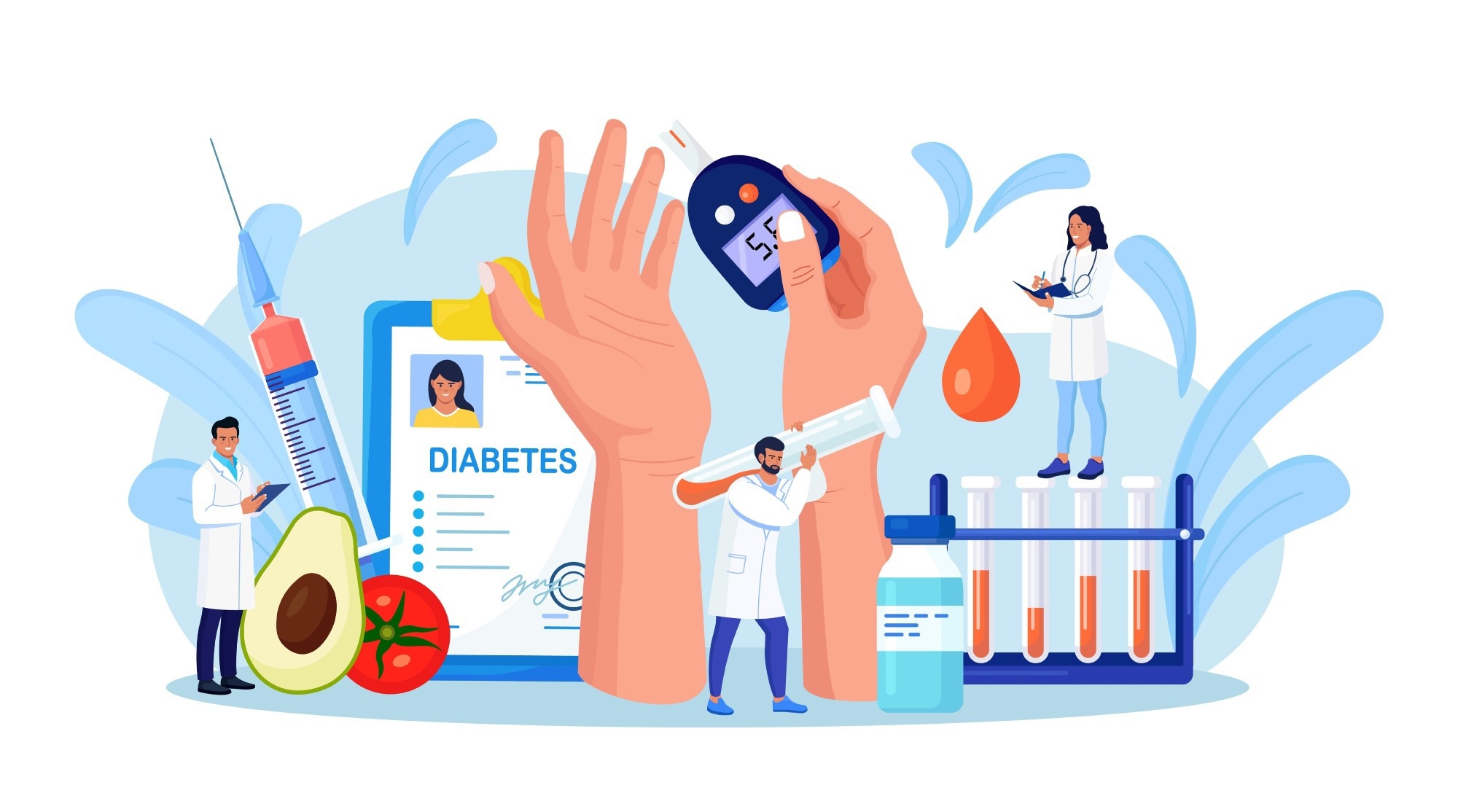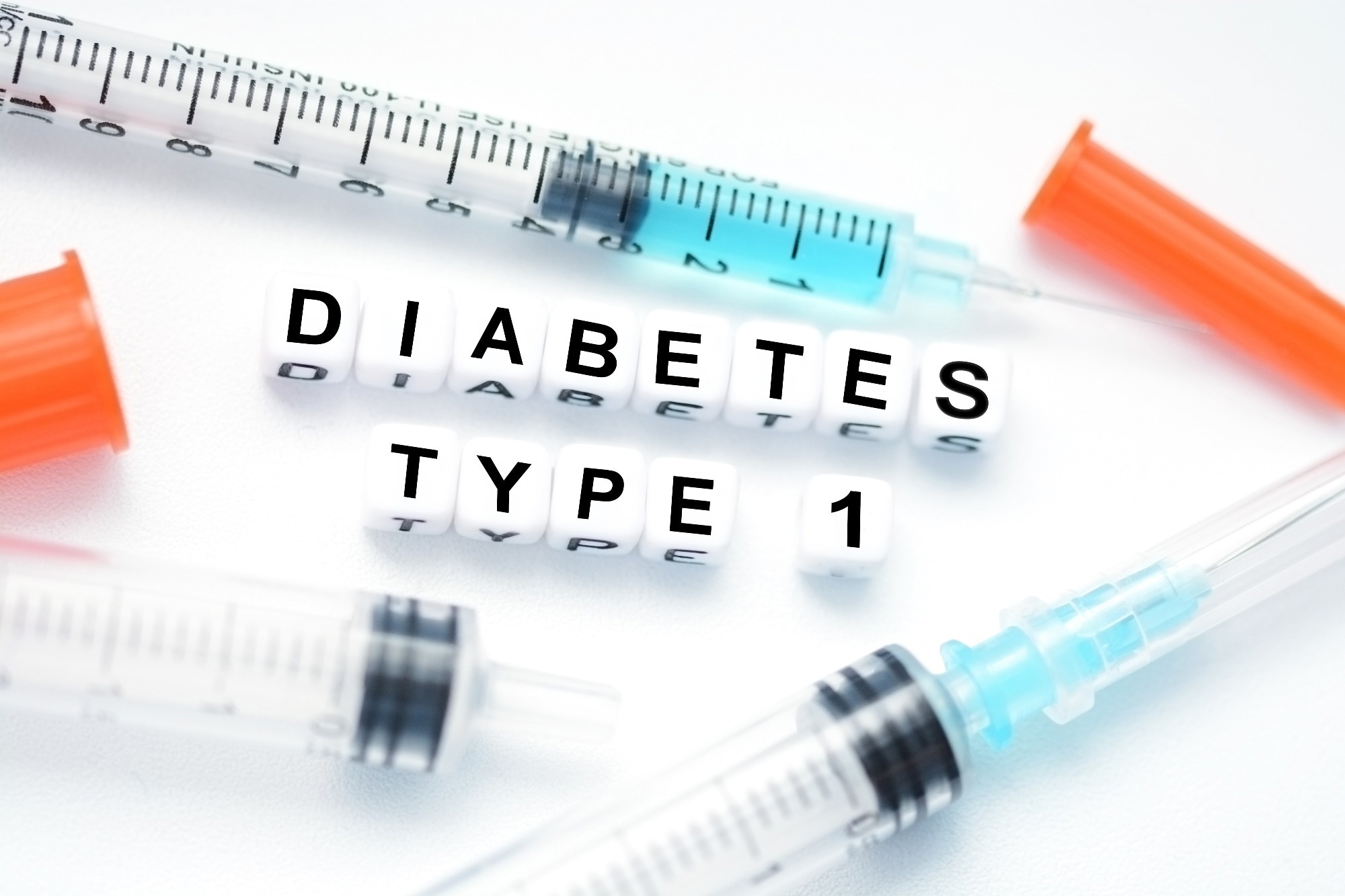I am the Research Communications Lead at JDRF UK, the UK branch of JDRF international. My job is to make the research informative, easy to understand and engaging for everyone living with or affected by type 1 diabetes. This involves condensing and communicating the latest ground-breaking type 1 diabetes research taking place globally.
We fund research into every stage of type 1, from prevention to treatments and cures. We are exploring whether new and existing drugs can be used to treat type 1 diabetes, as well as engineering cells and therapies to eradicate the condition.
JDRF was founded in 1970 by a group of parents whose children had type 1 diabetes. Since then, the incidence of type 1 diabetes has increased by roughly four percent each year, and there are now 8.7 million people living with the condition worldwide. JDRF is the leading global organization funding type 1 diabetes research, and our strength lies in our exclusive focus.
We support everyone living with type 1 diabetes by working with policymakers to increase accessibility and availability of treatments and by providing information and resources to help people manage their condition. The research we fund has led to new developments in diabetes technology and treatments and is laying the vital foundations for a cure.

JDRF’s vision is a world without type 1 diabetes. How are you achieving this vision?
We are committed to eradicating type 1 diabetes by funding world-class research, including 70 clinical trials currently taking place around the globe testing new drugs and devices. We pool our resources into a global programme that has invested more than £2 billion in research to date. We collaborate with academic institutions, policymakers, and corporate and industry partners to develop and deliver a pipeline of innovative therapies to people living with type 1 diabetes. We have staff and volunteers throughout the United States, the UK, Australia, Israel, Canada, Denmark and the Netherlands, who are dedicated to advocacy, community engagement, and our vision of a world without type 1 diabetes.
Can you tell us more about type 1 diabetes? How does type 1 diabetes differ from type 2?
People are not born with type 1 diabetes. Instead, they lose their ability to make insulin because their immune system attacks the insulin-producing cells in their pancreas. To replace this insulin, people with type 1 diabetes must take regular doses of insulin by injections or via an insulin pump. Once a person develops the condition, they will have it for the rest of their lives. This can be physically and mentally relentless. People with type 1 diabetes must try to match the amount of insulin they give themselves to the amount of glucose in their blood. However, this is difficult to achieve and many experience fluctuations in blood glucose levels between hyperglycaemia (very high) and hypoglycaemia (very low).
By contrast, people with type 2 diabetes either don’t produce enough insulin or the insulin they do make doesn’t work properly. The key difference is that type 2 diabetes is not caused by an attack from the immune system. Instead, there are several risk factors that contribute to its development, including family history, age and ethnic background, as well as lifestyle factors, such as weight, diet, and physical exercise. Often type 2 diabetes can be treated with healthy lifestyle changes alongside medication, but sometimes people with type 2 diabetes also need to give themselves insulin. In the long term, both these forms of diabetes can cause serious heart, nerve, eye, and kidney complications.
 Image Credit: Buravleva stock/Shutterstock
Image Credit: Buravleva stock/Shutterstock
As the precise causes of type 1 diabetes are not known, there are many myths surrounding the condition. What are some of the common misconceptions about type 1 diabetes?
A myth we hear a lot is that type 1 diabetes is caused by an unhealthy lifestyle – especially eating too much sugar. This is simply not true. No one with type 1 diabetes has done anything to cause their condition. We don’t know exactly what causes their immune system to go awry and start attacking the insulin-producing cells in their pancreas. However, research is underway to identify the initial cause of this rogue immune attack, with scientists exploring links to certain viruses and gut bacteria.
Another prevalent misconception is that people with type 1 diabetes can’t or shouldn’t eat certain foods, such as those high in sugar. In fact, people with type 1 diabetes can eat whatever they want. They just need to make sure they give themselves the correct amount of insulin to match their diet.
Some people also wrongly believe that people with type 1 diabetes can’t play sports. But there’s no reason why they can’t do the same exercise as others. They will need to check their blood glucose level is stable first and keep checking it during exercise. They may also need to have a snack before they start exercising. Many of our supporters with type 1 diabetes run the London Marathon each year, demonstrating they can do just as much exercise as people without the disease.
Diabetes incidence is increasing year by year. What are some of the signs and symptoms of diabetes that people should be aware of?
There are four key signs to look out for that could mean someone has type 1 diabetes. Watch out for someone drinking lots of water and going to the toilet more frequently than usual. Also, look out for sudden and unexplained weight loss and extreme tiredness. An easy way to remember these symptoms is the 4Ts: thirst, toilet, thinness, and tiredness. Everyone should be aware of these four symptoms because anyone can get type 1 diabetes.
JDRF research has not only led to new developments in diabetes technology and treatment, but it has also pushed new boundaries to one day find a cure for type 1 diabetes.
Can you tell us more about some of the recent exciting research advancements in diabetes?
For me, the most exciting advancement towards a cure for type 1 diabetes is the research to grow human insulin-producing cells (called beta cells) in the lab. Researchers across the world are doing this by encouraging human stem cells – cells that can grow into any other human cell – to grow into beta cells.
We are now at the stage where a clinical trial is taking place in Boston, USA, where some of these lab-grown beta cells are being transplanted into people with type 1 diabetes. The company running the trial is called Vertex Pharmaceuticals, and their researchers are monitoring their participants closely. They have already seen huge reductions in the amount of insulin the patients need to inject each day to keep their blood sugar levels stable, with one participant even becoming insulin-independent 270 days after receiving the new cells. Having funded the initial research exploring whether beta cells could be made in a lab, we are incredibly excited to see the outcome of this ground-breaking trial.
 Image Credit: Eviart/Shutterstock
Image Credit: Eviart/Shutterstock
World Diabetes Day is celebrated annually on November 14th. What does World Diabetes Day mean to JDRF?
World Diabetes Day is our chance to get the attention of the wider population and put type 1 diabetes on their agenda. It’s when the spotlight is on us, and we can use that to raise awareness of the signs of type 1 diabetes and how serious and life-threatening a condition it is, as well as highlight the differences between the types of diabetes and dispel widespread myths about type 1 diabetes. As a research-focused charity, we believe in the power of research. So, our role in communicating breakthroughs to the public is vital, and World Diabetes Day gives us the opportunity to reach and inspire a wider audience to the importance of medical research.
Why is it so important to raise awareness of type 1 diabetes through World days like World Diabetes Day?
It is crucial to raise awareness of type 1 diabetes so that everyone is aware of the four key signs to look out for to help diagnose people earlier. One out of four children is diagnosed with type 1 diabetes while in a potentially fatal condition called diabetic ketoacidosis (DKA). DKA occurs when a severe lack of insulin leaves the body unable to use glucose for energy, so it starts to use fat instead. This process releases chemicals called ketones, which turn the blood acidic, leading to a coma and death if not treated immediately.
What is next for JDRF? Are there any exciting upcoming projects?
The most exciting news on the horizon is the first disease-modifying drug for type 1 diabetes. We are eagerly awaiting a decision from the drug administration agency in the US (the FDA) on the approval of an immunotherapy drug called teplizumab. JDRF has continuously funded the development and testing of this drug from its initial stages. Revolutionary clinical trials funded by JDRF have shown teplizumab can delay type 1 diabetes for up to three years. It targets the immune attack that causes the condition, making it the first disease-modifying drug for type 1 diabetes.
More immunotherapy drugs are now progressing rapidly through clinical trials, which are exploring their use in preventing, treating and curing type 1 diabetes by protecting remaining or transplanted insulin-producing beta cells.
 Image Credit: Ahmet Misirligul/Shutterstock
Image Credit: Ahmet Misirligul/Shutterstock
About Josie Clarkson
I am the Research Communications Lead at JDRF UK. I have an undergraduate degree in Neuroscience from the University of Nottingham and a Master’s in Science Communication from Imperial College London. I’ve always been fascinated by what happens when things go wrong in the body to cause diseases, and I am passionate about helping those people learn about their condition.
London. I’ve always been fascinated by what happens when things go wrong in the body to cause diseases, and I am passionate about helping those people learn about their condition.
A recent career highlight was attending the European Association for the Study of Diabetes (EASD) conference in Sweden, which was the first major in-person diabetes research conference since the pandemic. The conference was inspiring as so many world-leading researchers shared their exciting breakthroughs, from sophisticated integrated diabetes technology to promising results from clinical trials for new treatments and cures. It was the beacon of positivity and hope that we all needed after a challenging few years.